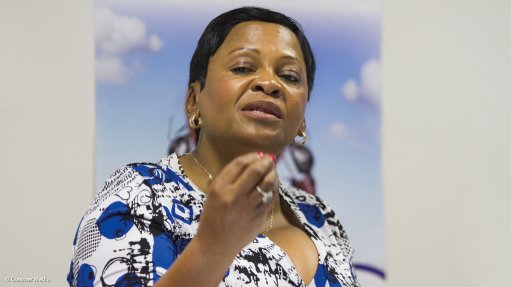
Water and Sanitation Minister Nomvula Mokonyane
Photo by: Duane Daws
Amid new night-time water restrictions on eThekwini residents, Water and Sanitation Minister Nomvula Mokonyane has confirmed that a medium-sized seawater desalination plant is being studied for development in an area south of the city.
Writing in response to a Parliamentary question posed by the Congress of the People’s Deidre Carter, Mokonyane said seawater desalination was an important option being considered for implementation by water boards and municipalities.
“Currently the Durban area is investigating the desalination as an option and there will be a decision made soon on whether to implement a medium-sized seawater desalination plant to the south of the city, or to develop conventional water storage close by.”
No details were provided as to the precise size of the proposed facility, nor its expected capital cost.
However, the response came as the eThekwini municipality unveiled new night-time water cuts in an effort to ease pressure on KwaZulu-Natal’s drought-afflicted dams. Water cuts would be between 21:00 and 04:00 to allow reservoirs to fill up for the next day. The cuts would be ongoing until there was sufficient rainfall to address depleted dam water levels.
Mokonyane said seawater desalination was becoming more competitive when compared with other available water resource options and she, therefore, expected medium to large plants to be implemented in a number of coastal cities in future.
“We can also expect to see small seawater desalination plants, making use of less expensive beach well raw water abstraction (as compared with expensive ocean abstraction for larger seawater desalination plants), becoming viable in certain local applications.”
Besides cost, however, desalination plants were also energy intensive and any large-scale deployment would require affordable and stable electricity supply. This could emerge as a domestic constraint in light of South Africa’s power shortfalls and its fast rising electricity tariffs.
Mokonyane stressed that that department was encouraging various measures to extend the available water resources, including the use of groundwater, the reuse of water, rainwater harvesting and desalination.